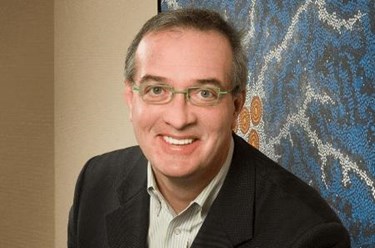Apple Taps Sage Bionetworks Co-Founder Stephen Friend For "Health-Related Projects"
By Jof Enriquez,
Follow me on Twitter @jofenriq

Apple has hired Dr. Stephen Friend, co-founder and president of Sage Bionetworks — the non-profit research organization which closely worked with Apple to get the company's ResearchKit platform off the ground — for an unspecified role.
"Dr. Friend has accepted a position with Apple Inc. where he will work on health related projects," Sage said in a statement that also announced the promotion of Dr. Lara Mangravite to succeed Friend as president of the company. Friend will transition to Chairman of the Board and "will continue to work with Sage at a strategic level while stepping away from responsibility for day to day operations."
Apple said it had "nothing more to share about [Friend’s] role or title," reports Business Insider.
Prior to co-founding Sage, Friend was a top executive at pharmaceutical company Merck, which had bought Rosetta Inpharmatics, a research-driven startup he co-founded.
While his exact role at Apple is yet undetermined, Friend is a logical fit for the technology giant's growing team of medical experts trying to realize the company's ambitious goals in healthcare. Under Friend's leadership, Sage was a key Apple partner Apple, helping to launch two of five studies that use Apple's ResearchKit platform for user-driven, large-scale health studies: the mPower study focusing on Parkinson's disease, and the Share The Journey study on breast cancer patients. Friend was lead investigator for both studies.
"Sage Bionetworks is definitely a big player with where Apple goes with health, but there's some sort of pseudo-interesting relationship between the two of them," said Ahmed Albaiti, CEO of health care consultancy Medullan, to Business Insider. "Sage has a very rich think-tank set of resources, and they are the ones that trailblaze on these Apple products, but they don't help you develop apps."
What Sage developed was crucial, though. The company created what it calls the Bridge server, which serves as the back-end for data collection and distribution of all five ResearchKit studies.
As the company website explains, "After the Bridge server receives study data from participants’ iPhones, the data is de-identified and coded and then hosted in Sage Bionetworks’ Synapse platform, a collaborative data science environment where research groups can work with the data."
According to Xconomy, Friend is an advocate of data sharing and previously described Apple's ResearchKit as a good start toward a "participant-centered model." He also touted the consent form accompanying the mPower app as a solution to vexing privacy issues associated with big data initiatives and research studies.
Apple has sought to allay privacy concerns from iOS device users. The company said recently that its iOS10 mobile operating system will be using an algorithm called "differential privacy" that "seeks to minimize the chances of identifying the data’s origin while still allowing Apple to draw key inferences to improve its AI products," reports Digital Trends. Users will have the choice to opt in and provide consent for Apple to save the data, and to specify for which purpose(s) data will be utilized.
"As researchers, we have an ethical obligation to participants to maximize the scientific value of their data donation. Our engagement with research participants should be as co-equals in the research ecosystem," Friend wrote in a commentary published recently in Nature Biology, detailing the informed consent process and data sharing framework for mobile devices developed at Sage.
